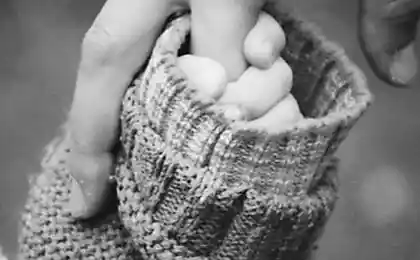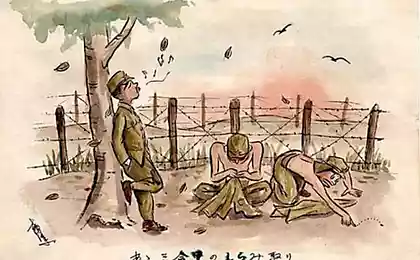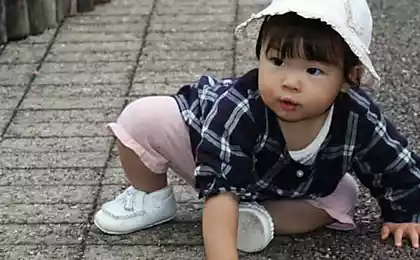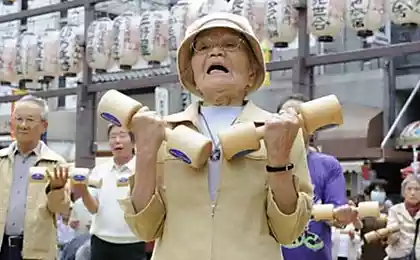862
You'll be surprised to learn why Japanese children never cry!
Each country has its own cultural characteristics and methods of educating the younger generation. In Japan, the traditional education has its roots deep into the history of this country, and not changed since then. The most basic fact which is evident when you are in Japan, is that the kids like as do not act up, and their parents is not abused. How is this happening and how does this understanding between generations can be understood by a closer look at the how and with what settings are raising children in this country.
Since ancient times, Japanese women have not had the opportunity to share the work, for example in the field and at home and raise children, so they are doing it at the same time. Kid primatyvalsya to Mom special cloth and accompanied her during all sessions. This mother never ceased to voice what she was doing, and talk with your child, allowing him to feel involved in all processes and constantly evolve. It is a frequent occurrence in Japan was when young children first learned to speak, and then - walk.
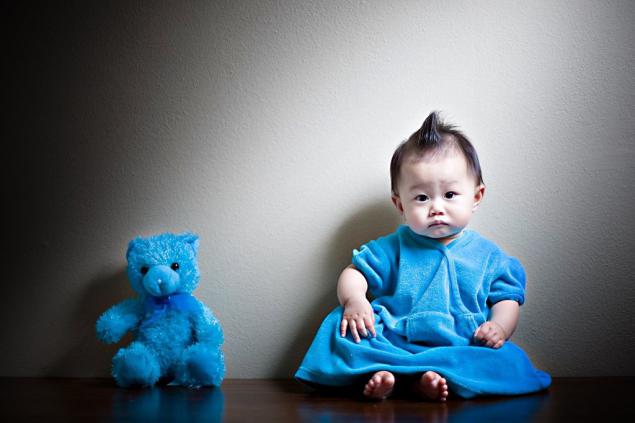
tradition to carry around with crumbs and talk to him at the same time preserved to this day. In stores in Japan there is a range of clothing, it was convenient to wear a baby. This large pockets, and special slings, and even a large jacket with two hoods. In modern Japan, the children do not only women. In the order of things when worn with a toddler and a lisp and a man. In this country, it is not accepted to deny children in the attention and bodily contact. Even they sleep with their parents up to ten years.
Also it is necessary to take into account the fact that children are inculcated the notion that we must not disturb the other, to be quiet, polite, and be like everyone else. Also, the Japanese do not express their emotions with words, but show discontent with the help of sight and intonation. Children can accurately recognize that parents do not approve of their behavior, and often tries to correct.
In today's world of Japanese women with young children or do not work at all or find the position with fewer hours to devote themselves to the child. Summing up, we can say that in Japan, children receive a large number of parental warmth, love and care, which is likely to affect their future sense of self. Also, because of cultural features they do not express their emotions rapidly, and try to be quiet, and therefore cry much less.
Share this article on the methods of cognitive training in Japan with your friends!
Since ancient times, Japanese women have not had the opportunity to share the work, for example in the field and at home and raise children, so they are doing it at the same time. Kid primatyvalsya to Mom special cloth and accompanied her during all sessions. This mother never ceased to voice what she was doing, and talk with your child, allowing him to feel involved in all processes and constantly evolve. It is a frequent occurrence in Japan was when young children first learned to speak, and then - walk.

tradition to carry around with crumbs and talk to him at the same time preserved to this day. In stores in Japan there is a range of clothing, it was convenient to wear a baby. This large pockets, and special slings, and even a large jacket with two hoods. In modern Japan, the children do not only women. In the order of things when worn with a toddler and a lisp and a man. In this country, it is not accepted to deny children in the attention and bodily contact. Even they sleep with their parents up to ten years.
Also it is necessary to take into account the fact that children are inculcated the notion that we must not disturb the other, to be quiet, polite, and be like everyone else. Also, the Japanese do not express their emotions with words, but show discontent with the help of sight and intonation. Children can accurately recognize that parents do not approve of their behavior, and often tries to correct.
In today's world of Japanese women with young children or do not work at all or find the position with fewer hours to devote themselves to the child. Summing up, we can say that in Japan, children receive a large number of parental warmth, love and care, which is likely to affect their future sense of self. Also, because of cultural features they do not express their emotions rapidly, and try to be quiet, and therefore cry much less.
Share this article on the methods of cognitive training in Japan with your friends!
Scientists have found a surprising explanation for the fact why the dog always goes on the heels of the owner!
Spring 22 cards that are relevant as ever. Charge the solar mood!




